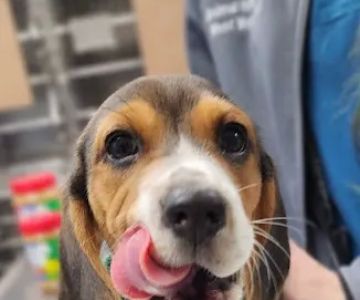What Degree Do You Need to Become a Livestock Veterinarian?
- 1. Understanding the Role of a Livestock Veterinarian
- 2. Required Education and Degrees for Livestock Veterinarians
- 3. Real-Life Stories of Livestock Veterinarians
- 4. Additional Skills and Certifications
- 5. How to Start Your Career as a Livestock Veterinarian
- 6. Why This Career Might Be Perfect for You
1. Understanding the Role of a Livestock Veterinarian
If you’ve ever been curious about what it takes to become a livestock veterinarian, you’re not alone. Livestock veterinarians play an essential role in maintaining the health and wellbeing of animals on farms and ranches. They are responsible for treating a variety of animals, including cows, sheep, goats, pigs, and even some horses. The duties of a livestock vet include diagnosing illnesses, providing vaccinations, performing surgeries, and advising farmers on proper animal husbandry practices. It's a career that combines veterinary science with agricultural knowledge, and it requires both passion and precision.
2. Required Education and Degrees for Livestock Veterinarians
To become a livestock veterinarian, there are several educational steps that must be followed. The journey begins with obtaining a Bachelor’s degree in a related field, such as animal science or biology. From there, aspiring veterinarians must attend a veterinary school accredited by the American Veterinary Medical Association (AVMA), which typically requires four years of additional schooling. During veterinary school, students will undergo a mix of classroom learning and hands-on clinical training to develop their skills.
Undergraduate Degree
While some individuals may wonder, “What degree do you need to be a livestock veterinarian?” the answer typically starts with an undergraduate degree. A bachelor’s degree in animal science, biology, or another life science is the most common path. These degrees provide foundational knowledge in biology, chemistry, and animal health—topics that are critical for understanding the veterinary sciences. For example, while pursuing my own veterinary degree, I took courses in animal nutrition, genetics, and diseases of livestock, all of which laid the groundwork for my later studies.
Veterinary School
After completing the undergraduate degree, the next step is applying to veterinary school. The application process can be competitive, requiring a strong academic record, relevant experience working with animals, and often, volunteer work at veterinary clinics or farms. Once accepted, veterinary school typically lasts four years and culminates in a Doctor of Veterinary Medicine (DVM) or Veterinary Medical Doctor (VMD) degree. It’s during this time that you’ll specialize in treating livestock and other large animals, gaining both theoretical knowledge and practical experience.
Licensing and Certification
After completing veterinary school, you will need to obtain a license to practice as a veterinarian. Licensing requirements vary by state but generally involve passing the North American Veterinary Licensing Exam (NAVLE), along with additional state-specific exams. Once licensed, you can begin working as a livestock veterinarian. In some cases, veterinarians also choose to pursue additional certifications in specialized areas, such as large animal surgery or veterinary nutrition.
3. Real-Life Stories of Livestock Veterinarians
To illustrate the path to becoming a livestock veterinarian, let’s look at a couple of real-life examples. Dr. Emma Foster, for example, decided to pursue a career in livestock veterinary medicine after growing up on a cattle farm. She was always fascinated by animals and their healthcare, and after earning her degree in animal science, she applied to a veterinary school that offered specialized training in livestock care. Dr. Foster now works with farmers across her state, helping prevent disease outbreaks and offering expert advice on animal health.
Another story is that of Dr. Henry Williams, who made his way into livestock veterinary practice after working as a farmhand during his teenage years. With a strong background in agriculture, he chose to focus his veterinary practice on swine health, where he works with pork producers to maintain herd health and prevent disease transmission. Dr. Williams often emphasizes the importance of good management practices alongside veterinary care to ensure the overall health of livestock populations.
4. Additional Skills and Certifications
In addition to the required degrees and licenses, livestock veterinarians often benefit from additional skills and certifications that can enhance their ability to care for animals and communicate with farmers. For instance, many livestock vets choose to gain expertise in areas like animal nutrition, preventive care, or large animal surgery. Acquiring certifications in these fields can make a veterinarian more attractive to employers and farmers, as they bring specialized knowledge to the practice.
Moreover, strong communication skills are essential for interacting with farmers and ranchers, as a large part of the role involves educating them on best practices for animal health management. Effective communication ensures that advice is followed, and it can also prevent misunderstandings that might affect the health of livestock.
5. How to Start Your Career as a Livestock Veterinarian
Once you’ve completed your education and obtained your veterinary license, you may wonder how to start your career as a livestock veterinarian. Many veterinarians begin by joining established veterinary practices that specialize in large animal care, working as associates under experienced mentors. Others may choose to start their own practice, offering mobile veterinary services to farmers in rural areas.
Networking with other professionals in the field is a great way to get your foot in the door. Attending agricultural fairs, veterinary conferences, and joining professional associations such as the American Association of Bovine Practitioners can help you meet potential employers and gain access to the latest industry trends and research.
6. Why This Career Might Be Perfect for You
For those passionate about animals and agriculture, becoming a livestock veterinarian can be an incredibly rewarding career. It offers the opportunity to make a significant impact on the health and productivity of animals that are vital to our food supply and economy. The combination of hands-on animal care and problem-solving is ideal for individuals who enjoy a variety of work and are driven by a desire to help both animals and people.
Additionally, the job provides a great deal of job security, as the demand for skilled veterinarians in agriculture continues to grow. With the increasing importance of food safety and sustainable farming practices, livestock veterinarians will remain crucial in ensuring that animals are well-cared for and that our food systems are healthy and resilient.











